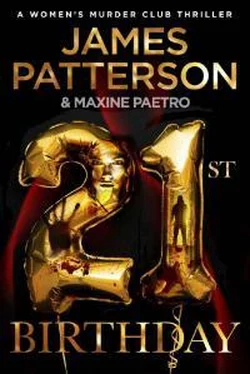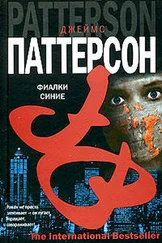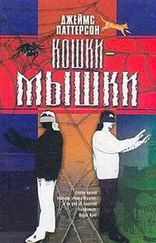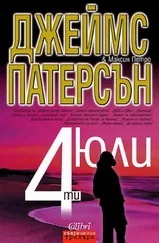Lindsay said, finally, “Who was the officer who took your report?”
“Bernard. Officer Bernard.”
“Okay, Kathleen,” Lindsay said, “I’ll check with Officer Bernard. Give Cindy your number and I’ll get back to you. If a baby has been missing since eight this morning, that’s a police matter. Call the SFPD and ask for Tom Murry in Major Crimes. He’s the head of Missing Persons. Keep your phone charged.”
“I’ve met Lieutenant Murry,” Kathleen said. “He doesn’t take me seriously.”
“I’ll call him, too,” said Lindsay. “See how the investigation —” she broke off. “Sorry, I’ve got to go.”
Cindy said good-bye to Lindsay, watched Kathleen write down her phone number with a shaking hand, muttering, “You should help me, Cindy. Lorrie is dead. I feel it in my heart.”
Cindy said, “It’s almost dark. Go home and call the police, again. Did you call Tara’s friends? What about her neighbors? If you hear anything at all, let me know. Wait. Let me see that picture.”
Kathleen handed the picture of Tara and Lorrie to Cindy, who snapped it with her phone. She told Kathleen that she could run it with a request for information as to the pair’s whereabouts without mentioning Lucas Burke.
Tugging at her watch cap, Kathleen muttered a thank-you as Cindy walked her out to the elevator. Cindy walked back to her office, wondering why Kathleen Wyatt had come to her. Was she right about her son-in-law? Or was Kathleen Wyatt just paranoid?
CHAPTER 4
I’D BEEN AT MY DESK since seven Tuesday morning.
It was now eight thirty. I wanted to get some answers for Kathleen Wyatt before the nine a.m. all-hands meeting Lieutenant Jackson Brady had called. As the mother of a daughter myself, I felt an extra urgency.
My partner, Inspector Richard Conklin, and I sit at facing desks, at the front of the dull gray Homicide bullpen. He’d just arrived, but when Rich heard me talking to Lieutenant Murry over the phone, he went to the break room to get coffee.
Rich knew I was doing a favor for Cindy, his live-in love and my friend. When he got back to his desk, I thanked Murry, hung up, and Conklin pushed a fresh mug of mud over to my desk. It was black, three sugars, just how I like it.
“Boxer. What did Murry say?”
“He said that Lucas Burke is a bad dude, but he doesn’t think he’s a killer.”
“How bad?”
I blew on my coffee, then referred to my notes.
“Last year, Lucas threatened a female motorist after a fender bender, grabbed her shoulders, called her names, and shook her. He was taken in for assault and battery but the motorist didn’t press charges.
“A few months later, Lucas took a chain saw to a neighbor’s tree he claimed was on his property. It was not. He got fined eight hundred dollars. End of that.
“Then, Kathleen reported him for domestic abuse of her daughter, but Tara denied it, said her mother was nuts. Kathleen is a little loosely wrapped, Richie. Which makes her hard to read. But it’s also true that abused women often deny the abuse.
“Anyway, that’s Lucas Burke’s record. He’s at least combative.”
I called Cindy and sipped coffee while Rich walked over to Sergeant Cappy O’Neil’s desk, sat on the edge of, it and traded what-ifs with him and Sergeant Paul Chi. I could hear them opining on the upcoming meeting, but there was little controversy. We were all of the same opinion. Brady was going to announce his future plans. But what had he decided to do?
The root of the matter was the scandal that had devastated the Southern Station, our station, not long ago. Lieutenant Ted Swanson of Robbery had enlisted two teams of bad cops to knock off drug dealers and payday loan joints for cash. Eighteen people died in several shoot-outs, and even Swanson took enough lead to kill him two or three times over. But he survived his injuries and was now serving out the rest of his worthless life at Chino, a maximum-security prison.
Warren Jacobi, our friend, my former partner, and at that time chief of police, had to take the fall. He was retired out, and Jackson Brady, our good lieutenant, picked up the slack for Jacobi, simultaneously running Homicide and the Southern Station. When asked to choose which job he wanted, he’d put off the decision. Maybe he took too long. Lately, rumor had it that the mayor was having talks with Stefan Rowan, a heavyweight organized-crime commander from New York.
I loved working for Brady. He was smart. He never asked anyone to do anything he wouldn’t do. He was brave. And he was loyal to the people who reported to him.
What scared me most was that the rumor might be wrong. That Brady was going to step up to become chief of police, and the hard-ass New Yorker would replace him as Homicide CO.
Maybe a promotion would be good for Brady, but speaking for myself, it would break my heart.
CHAPTER 5
I LOOKED PAST CONKLIN and saw Brady leave his office in the back corner of the squad room. He put on his jacket and headed up the center aisle toward the front of the room. Conklin got up from Cappy’s desk as Brady passed and joined me at our desks.
Brady took the floor, his blond-white hair pulled back in a pony, his denim shirt tucked in, his dark jacket unbuttoned. I couldn’t read his expression.
Brady took center stage at the front of the squad room, facing the dozen Homicide cops from the day shift, another dozen cops from the night shift, and more were coming in. Cops from other departments leaned against the walls, sat in empty chairs, or perched on the corners of desks, all quietly waiting for Brady to drop a bomb.
When the anticipation had stretched so thin it was starting to thrum, Brady said, “I know the wait time has been hard on everyone. I did my best to hold things together with your help. My wife says I look like I’ve been dragged behind a car. To tell the truth, I feel a little like that, but I was of two minds.
“Now, y’all know I’ve been running up and down the stairs, changing hats in the landing. I was asked to choose, fourth floor or fifth, but if I coulda kept doing both jobs, I woulda done it. But in the interest of safety, public good and welfare, and living to see my forty-fifth birthday, I’ve decided to hang my hat in Homicide.”
Big sigh of relief from me, and a spontaneous round of raucous applause and hooting from the squad.
I said loud enough for Brady to hear, “So glad, Brady. That was a sacrifice.”
“No, he said, “it was selfish. I just couldn’t move into Jacobi’s swell office and push paper. I’m a street cop and I like being part of the action.”
Laughter came up all around the room and it was like sunshine breaking through the clouds. Then I realized we hadn’t heard the rest of the story.
Who was our new police chief?
Anticipating the question, Brady said, “And that leaves the last shoe. I make it to be size eleven medium wide, currently filled by a former Homicide cop from LA and Vegas who for the last dozen years has been heading up our forensic lab, ably, with good humor. Not prideful, but we know he’s a first-class CSI.”
It took a minute for the parts to come together, and then I got it. I had just never considered Charlie Clapper as chief of police, but damn, he was an excellent choice.
Brady was saying, “At this point, I’m supposed to draw back the curtain and say about a former cop and highly respected forensic scientist, ‘Round of applause for our own Charlie Clapper, now police chief, SFPD.’
“But I forgot to get a curtain, and Clapper isn’t here. He’s going to be across the street at MacBain’s — second-floor private room reserved for alla us, from noon to two. No cover charge, beer’s on the house. If there are any questions, we’ll get ya answers all in good time.”
Читать дальше












